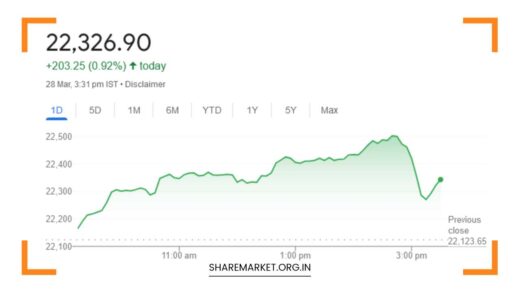Baba Food Processing IPO Listing: Exploring the Dynamics of an Agro-Food Processing Debut

Baba Food Processing IPO Listing
Baba Food Processing, a notable player in the agro-food processing sector, marked its entry into the stock market with an Initial Public Offering (IPO) on the NSE’s SME platform.
Formed in April 2015, the company has steadily grown and expanded its operations, culminating in its decision to go public.
However, the IPO listing did not unfold as anticipated, prompting a closer examination of the events leading up to this faint debut.
Lackluster Listing:
Shares of Baba Food Processing, specializing in the production of flour and semolina, faced a lackluster entry on the NSE SME platform.
The IPO, which garnered significant attention from investors, was oversubscribed more than 69 times during its subscription period from November 3 to November 7.
Despite this enthusiastic response, the shares entered the market at the IPO price of Rs 76, resulting in no immediate listing gains for investors.
The situation took a downturn swiftly as the share price tumbled to the lower circuit of Rs 72.20. This rapid decline translated to a loss of approximately 5 percent for IPO investors, sparking concerns and discussions within the financial community about the factors contributing to this unexpected turn of events.
Investor Response to the IPO:
The investor response to Baba Food Processing’s IPO was noteworthy, showcasing the company’s appeal within the investment community.
Qualified Institutional Buyers (QIB) played a significant role, subscribing a staggering 147.02 times, underlining institutional confidence in the company’s growth prospects.
Non-Institutional Investors (NII) also demonstrated substantial interest with a subscription rate of 84.73 times, while retail investors, often considered a barometer of public sentiment, subscribed 60.82 times.
These subscription figures not only reflect the faith investors had in Baba Food Processing but also raise questions about the apparent dichotomy between strong subscription numbers and the lackluster listing performance.
Such disparities often prompt market analysts to delve deeper into the intricacies of the company’s financials, business model, and market dynamics.
Utilization of IPO Proceeds:
The IPO aimed to raise Rs 33 crore, and the utilization of these funds was outlined in the prospectus. Panchkanya Foods, a wholly-owned subsidiary, was slated to receive investments for expansion.
Additionally, the company had plans to establish a new processing plant in Patna, furthering its production capabilities.
The funds were also earmarked for the purchase of machinery for the existing plant in Ranchi, addressing working capital requirements, debt repayment, and meeting general corporate purposes.
Understanding how these funds would contribute to the company’s future growth is crucial for investors seeking insights into Baba Food Processing’s strategic vision and operational enhancements.
The utilization of IPO proceeds often serves as a litmus test for management’s prudence and the company’s ability to leverage newfound capital effectively.
Company Background and Operations:
Baba Food Processing, with its inception in April 2015, has carved a niche for itself in the agro-food processing landscape.
Specializing in the production of wheat flour, maida, tandoori flour, and semolina, the company operates its own processing plant in Nangri, Ranchi.
The decision to set up another plant in Patna indicates the company’s expansionary mindset and a commitment to meeting the growing demand for its products.
Examining the company’s operational model is critical to understanding its potential for sustained success. From the cultivation of raw materials to the processing and distribution of finished products, Baba Food Processing’s value chain must be analyzed for efficiency and resilience.
Factors such as supply chain management, quality control, and distribution channels play pivotal roles in determining the company’s competitiveness in the market.
Financial Health and Performance:
A comprehensive assessment of Baba Food Processing’s financial health provides valuable insights into its stability and growth trajectory.
The company’s net profit figures, a key indicator of financial performance, demonstrate a positive trend. In the fiscal year 2021, the net profit stood at Rs 1.98 crore, reflecting a healthy financial position.
The subsequent years witnessed a gradual increase in net profit, reaching Rs 2.01 crore in FY 2022. However, the most significant leap occurred in FY 2023, where the net profit soared to Rs 5.03 crore.
This robust financial performance indicates not only the company’s ability to generate profits but also its capacity for sustained growth.
For the ongoing financial year, Baba Food Processing reported a net profit of Rs 1.92 crore in the April-June 2023 period.
Analyzing the quarterly performance offers a real-time perspective on the company’s operational efficiency and adaptability to market conditions.
Strategic Initiatives and Expansion Plans:
Baba Food Processing’s decision to set up a new processing plant in Patna unveils strategic initiatives aimed at expanding its production capabilities.
The rationale behind this expansion could stem from various factors, such as tapping into new markets, enhancing production efficiency, or securing a competitive edge in the industry.
Understanding the specifics of the expansion plans, including the scale of the new plant, the technologies employed, and the targeted markets, provides investors with a clearer picture of the company’s growth strategy.
Additionally, insights into how these expansion initiatives align with broader industry trends and market demands are crucial for evaluating their potential impact on the company’s market position.
Market Dynamics and Industry Trends:
The agro-food processing sector is dynamic, influenced by factors ranging from agricultural practices to changing consumer preferences.
Analyzing market dynamics and industry trends is essential for discerning the external forces that may impact Baba Food Processing’s performance.
Factors such as raw material prices, regulatory changes, and evolving consumer habits can significantly affect the company’s operational costs and market demand.
Assessing the company’s preparedness to navigate these external factors provides investors with a more holistic understanding of the risks and opportunities inherent in the industry.
Investor Sentiment and Market Perception:
The disparity between the strong investor response during the IPO subscription period and the subsequent lackluster listing performance raises questions about investor sentiment and market perception.
It is not uncommon for market dynamics to shift rapidly, influenced by a myriad of factors, including macroeconomic conditions, global events, and industry-specific developments.
Investor sentiment plays a crucial role in shaping stock performance, and understanding the factors influencing sentiment towards Baba Food Processing is pivotal for predicting future market behavior.
Analysts may delve into market reports, social media sentiment analysis, and expert opinions to gauge the prevailing sentiment and identify potential catalysts for market movement.
Risk Assessment and Mitigation Strategies:
Every investment comes with inherent risks, and understanding these risks is paramount for investors seeking a balanced and informed portfolio.
Baba Food Processing, like any other company, faces a spectrum of risks, including market volatility, supply chain disruptions, regulatory changes, and industry competition.
Examining the company’s risk disclosure in its IPO prospectus and subsequent communications can provide insights into how well-prepared the management is to navigate these challenges.
Additionally, understanding the mitigation strategies in place, such as diversification of suppliers, strategic partnerships, or technological innovations, can offer reassurance to investors concerned about potential risks.
Conclusion:
In conclusion, the Baba Food Processing IPO listing has unveiled a narrative rich in complexity and nuance. While the company’s operational performance and financial health showcase positive indicators, the market response during the listing has prompted a deeper exploration into the factors at play.
Investors, analysts, and industry observers are likely to closely monitor Baba Food Processing’s subsequent moves, including its response to market dynamics, the execution of expansion plans, and its ability to adapt to evolving industry trends.
The IPO listing, though initially faint, does not necessarily define the company’s long-term prospects, and a comprehensive understanding of its operations, financials, and strategic initiatives is crucial for making informed investment decisions.

















